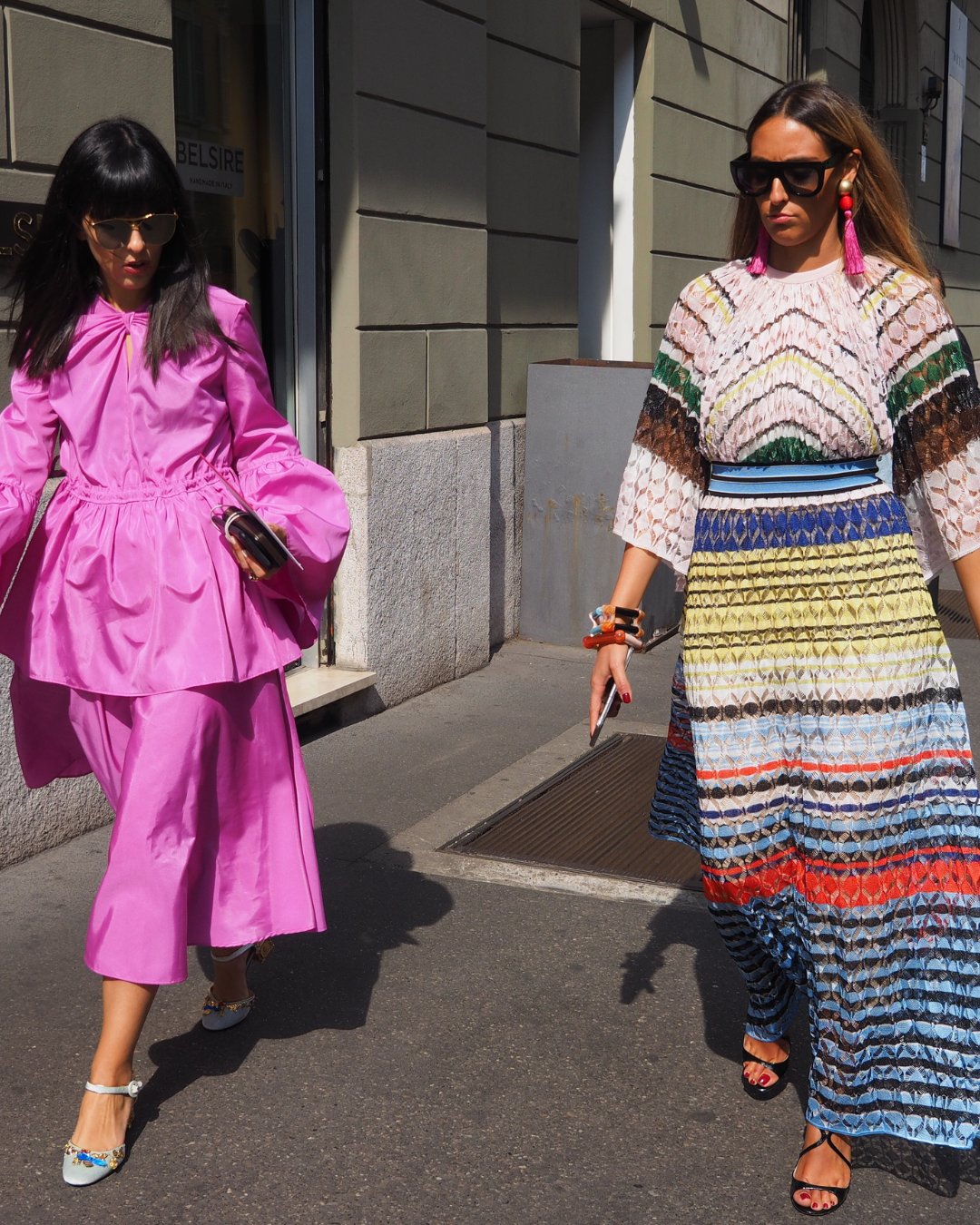Should Fast Fashion Brands Be A Part of the Sustainability Conversation?
Behind the star-studded runway shows, glossy magazines, and infamous brand collabs, fashion has a dirty little secret. Fashion's linear “make-take-dispose” business model is extraordinarily wasteful and wreaking havoc on our environment.
From biodiversity loss to excess water use and pollution to land degradation and rising greenhouse gas emissions, fashion's negative impact on the planet and subsequential effect on climate change is hard to ignore. Yet, production volumes continue to increase as the industry produces more and more clothes pushing beyond planetary boundaries and setting fashion on the trajectory to overshoot the 1.5°C global warming targets outlined in the Paris Climate Agreement. Each year, millions of clothes are made, worn, and thrown away, often after only a few wears.
At the center of this waste system is fast fashion, inexpensive, cheaply made clothing rapidly produced by mass-market retailers in response to the latest and most popular trends. Fast fashion giants aren't the only ones contributing to excessive consumption and throwaway culture. However, the fast fashion business model, which inherently relies on driving increased consumption of new products, is responsible for creating an intensely competitive, highly extractive, and deeply inequitable system to which the industry has become complicit.
Motivated by growing consumer concern, brands are joining the sustainability conversation left and right, launching sustainable collections made with recycled and innovative materials, committing to ambitious self-regulated targets, and launching eco-focused initiatives to reduce emissions.
Also joining the sustainability conversation are fast fashion brands, leaving the industry torn about fast fashion's role in addressing the problems they helped create and accelerate.
Shockwaves were sent through the industry last week when it was announced that ultra-fast fashion giant Shein, is dedicating $50 million over the next five years to an extended producer responsibility fund to tackle waste and offset its impact.
The fund is part of a multi-year agreement with The OR Foundation, a non-profit environmental-justice group that advocates for environmental justice and awareness around the impact of thrown-away fashion in Kantamanto market in Accra, Ghana. As the initial grant recipient, the OR Foundation will receive $5 million annually for three years, which the organization said it will use to expand its Mabilgu Apprenticeship Program, pilot fiber-to-fiber initiatives with Ghanaian manufacturers, and support allied organizations and communities in Ghana.
In similar news, The Apparel Impact Institute announced a $250 million Fashion Climate Fund, backed by H&M and Lululemon. The fund is aimed at decarbonization and will finance initiatives throughout the supply chain, from transitioning to renewable energy to scaling next-generation materials.
While these initiatives will directly provide much-needed resources to sustainability projects on the ground, critics warn of “corporate hijacking,” and potential greenwashing, pointing out that good deeds don't excuse the waste or the harm fast and ultra-fast fashion brands create.
Critics also warn that as long as the fast fashion business model relies on driving excessive consumption of new, often fossil-fuel-based clothing like polyester, their sustainability efforts are putting a bandaid over the real issues and allowing them to greenwash by leveraging their philanthropy and good deeds to refocus the conversation on their efforts to mitigate their impact rather than addressing the root cause.
“With a business model fundamentally dependent upon human and environmental exploitation, fast fashion is fashion's sustainability problem,” said Michelle Gabriel, Professor of Sustainable Fashion Strategy at Glasgow Caledonian New York College (GCNYC). “Sustainability is a long-term risk management framework meant to help us mitigate and change some of the worst and most self-destructive behaviors associated with how we create value. Sustainability efforts will always be at odds with the fast fashion business model. Thus sustainability efforts from fast fashion companies will always be only skin-deep at best and entirely ineffective and deceptive at worst. The only viable, effective way a fast-fashion company can truly embody and practice sustainability is to have a completely new and different business model. Anything short of that continues to be active harm.”
While many fast and conventional brands have joined the sustainability conversation, few have shown signs of implementing degrowth as a strategy to lessen their impact on people and planet. Instead, brands have set voluntary commitments, holding themselves accountable to…themselves.
Activists have long warned that relying on voluntary action to address social and environmental impact is misguided. Many believe a system where profit-driven companies can set their own benchmarks with little accountability will never be enough to create transformative change. Instead, an unwavering shared commitment is needed to achieve tangible progress — and that commitment will only come from economic incentives and government regulation.
“While sustainability may be of some importance to fast fashion brands, environmental and human destruction has not been enough to prompt them to change in the face of such profitable outcomes stemming from their business model. Given the history of inaction and obvious interest in continued growth, governmental policy is the only way to potentially handicap these fast fashion companies and effectively force business model change” said Gabriel. “Policy is a mechanism to force needed changes that would never happen without effective policy. Intelligent policy can effectively disincentivize unsustainable practices through cost or illegality and reward more sustainable practices by creating a new bottom line for the greater playing field, giving a competitive advantage to companies who are already considering sustainability.”
Though goal-oriented legislation seems to be underway with the introduction of state and federal bills until implemented, what is the role of fast fashion in the sustainability conversation?
This is where the industry is torn.
While some are calling fast fashion’s presence in the sustainability conversation a step toward accountability, others aren’t convinced. On the one hand, some industry insiders believe that until brands are willing to address degrowth and unsustainable nature of their business model, any progress fast fashion brands make is greenwashing; therefore, they shouldn't be a part of the conversation.
Others believe that brands taking action, any action, is a positive step forward. Because of the sheer size of fast fashion brands, even small changes made by companies can have a tremendous positive impact and ripple effect on the industry; therefore as massive players with tremendous power, to not include fast fashion in the conversation would hinder progress at a time when action must be accelerated.
What is the role of fast fashion giants in the sustainability conversation? In the absence of legislation, what role should fast fashion play in cleaning up the mess they helped create?
Share your thoughts and join the conversation happening now.









